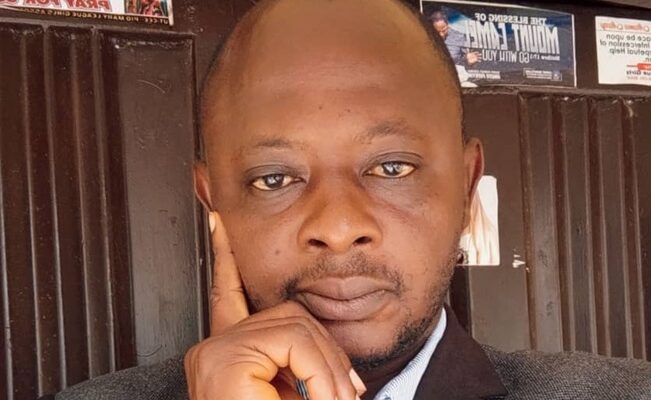Across continents, a quiet revolution is unfolding. From Lagos to London, from São Paulo to Seoul, young people rise each morning with a question that resonates louder than the pursuit of wealth or the chase for comfort: What is my purpose? In an era marked by technological acceleration, political polarization, and economic uncertainty, the deepest hunger of humanity is not simply survival but significance. According to a 2023 Gallup World Poll, over 70 percent of millennials and Gen Z respondents reported that they would rather work in roles aligned with their values than earn higher pay in meaningless jobs. This generation is not only seeking careers; it is seeking calling.
This urgency is not new, though the context is modern. Centuries ago, revivalists on both sides of the Atlantic thundered with the same message: human beings are not accidents of biology but intentions of divinity. Jonathan Edwards, the American theologian of the Great Awakening, declared, “The great end for which man was made is to glorify God, and enjoy Him forever.” His words resonate still, a reminder that existence is more than chance and that purpose is the essence of life itself.
Purpose, once proclaimed in crowded chapels and open fields, is now the global currency of fulfillment. Without it, societies stumble. Nations filled with citizens who live without meaning are prone to despair, unrest, and even revolt. The protests that sweep through streets in Asia, Europe, Africa, and the Americas reflect not only policy grievances but a deeper cry for identity, direction, and destiny. When people cannot answer why they exist, their lives become vulnerable to anger, addiction, and apathy.
John Wesley, the English revivalist who rode thousands of miles on horseback to spread the gospel, captured purpose as duty when he urged: “Do all the good you can, by all the means you can, in all the ways you can, to all the people you can, as long as ever you can.” For Wesley, purpose was not a luxury of the privileged but a moral obligation binding every individual to use their life for the good of others. George Whitefield, another great revivalist, warned his audiences that wasted life was the greatest poverty. Charles Finney, the fiery lawyer-turned-preacher of America’s Second Great Awakening, spoke with urgency: “Every member must work, or quit. No honorary members.” His warning rings true today: calling demands action.
Modern psychology confirms what revivalists once preached. Viktor Frankl, the Austrian psychiatrist and Holocaust survivor, concluded from the horrors of concentration camps that “those who have a ‘why’ to live, can bear almost any ‘how.’” His work Man’s Search for Meaning remains a cornerstone of modern philosophy, proving that the hunger for purpose is not merely spiritual rhetoric but a human necessity. Frankl’s secular insight harmonizes with Leonard Ravenhill, the 20th-century British revivalist, who declared: “The opportunity of a lifetime must be seized within the lifetime of the opportunity.” Whether in a prison camp or a pulpit, the message is clear: life cannot be endured without meaning.
Yet in our time, purpose has often been trivialized. In the age of social media, calling is sometimes confused with clout. A generation raised on digital applause risks mistaking influence for destiny. True purpose, however, rarely comes wrapped in ease. Catherine Booth, co-founder of the Salvation Army, stood defiantly in Victorian England to remind her world: “If we are to better the future, we must disturb the present.” Her life and work proved that destiny demands sacrifice, and that genuine purpose is measured not in likes but in lives touched.
Billy Graham, who preached to more people in person than anyone else in history, spoke to a troubled 20th century with words that remain timely: “The will of God will not take us where the grace of God cannot sustain us.” His voice reassured millions that life is not random, that even in political chaos and personal crisis, human beings are guided by divine intention. That conviction laid the foundation for resilience in the face of wars, depressions, and revolutions.
Few articulated the subject of purpose in modern language as powerfully as Dr. Myles Munroe. The Bahamian preacher and leadership mentor carried this message into the 21st century, making it accessible across Africa, the Caribbean, and the United States. “The greatest tragedy in life is not death, but life without purpose,” he declared. His writings, including Understanding Your Potential, influenced leaders, entrepreneurs, and ordinary men and women, reminding them that fulfillment is not found in possessions but in becoming what one was created to be. He warned consistently: “When the purpose of a thing is not known, abuse is inevitable.” That warning applies as much to governments and economies as to individuals.
Why has purpose become the defining quest of this century? Because despite unprecedented wealth and connectivity, humanity remains restless. Technology has collapsed distance, yet not despair. We speak instantly across continents, yet many struggle to silence the questions within. The pandemic deepened this reality, stripping away illusions of permanence and forcing millions to confront mortality. What emerged is a generation unwilling to settle for existence without essence.
History suggests that civilizations collapse not first from external threats but from internal aimlessness. Rome rotted from decadence before enemies breached its walls. Britain found moral renewal in revival after industrial despair threatened its conscience. America’s deepest social shifts — from abolition to civil rights — were driven not merely by politics but by individuals who believed they were summoned by destiny to challenge injustice. D.L. Moody once said, “The world has yet to see what God can do with a man fully consecrated to Him.” His challenge to consecration has not lost its urgency; it stands as a timeless reminder that greatness is often the fruit of single lives anchored in calling.
Purpose today is not confined to pulpits or parliaments. It is visible in the Kenyan nurse tending HIV patients, in the Chicago teacher guiding immigrant children, in the Brazilian farmer embracing sustainable practices. These are lives lived intentionally, often unseen by history, yet central to the world’s healing. They embody Wesley’s call to goodness and Munroe’s vision of potential fulfilled.
Obstacles remain. Poverty, inequality, and corruption make the pursuit of destiny difficult for millions. The question arises: how can a young person think of calling when survival is not guaranteed? Yet history shows that purpose often flourishes in adversity. John Wesley preached despite illness and mockery. Catherine Booth fought injustice despite societal rejection. Smith Wigglesworth, who could barely read, became a global voice of revival. Their lives testify that destiny is often birthed in difficulty, not abundance.
Leonard Ravenhill’s haunting reminder still applies: “The world is not waiting for a new definition of the Gospel but for a new demonstration of it.” Likewise, the world is not waiting for new slogans of destiny but for authentic lives that embody meaning. A demonstration of purpose in homes, workplaces, and governments is the medicine nations crave.
This global quest for purpose cannot be ignored. It is shaping the decisions of the next generation of voters, workers, parents, and leaders. It is influencing the policies of governments and the direction of industries. It is fueling both protests and innovations. To dismiss it as idealism is to misread the times. The hunger for purpose is the thread tying together the personal and the political, the sacred and the secular.
In the final analysis, the revivalists of centuries past and the thinkers of today converge on one truth: human beings were made intentionally. Edwards called it glorifying God. Wesley called it doing good. Frankl called it a “why.” Munroe called it potential. But all agree: without purpose, life shrinks into despair, and with it, humanity expands into destiny.
The task before this generation is not simply to build technology or accumulate wealth but to answer the oldest of questions: Why am I here? In answering it, we may yet recover the clarity to heal our fractured world. For indeed, as history and faith remind us, we were made on purpose, for a purpose.
– Inah Boniface Ocholi writes from Ayah – Igalamela/Odolu LGA, Kogi state.
08152094428 (SMS Only)




